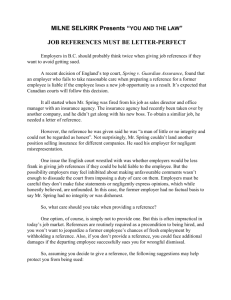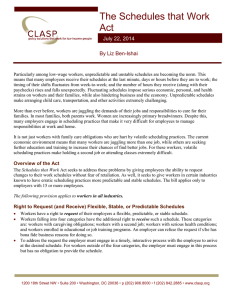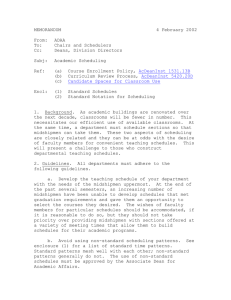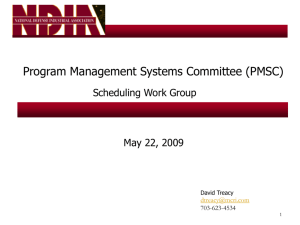Women's Economic Security Agenda
advertisement
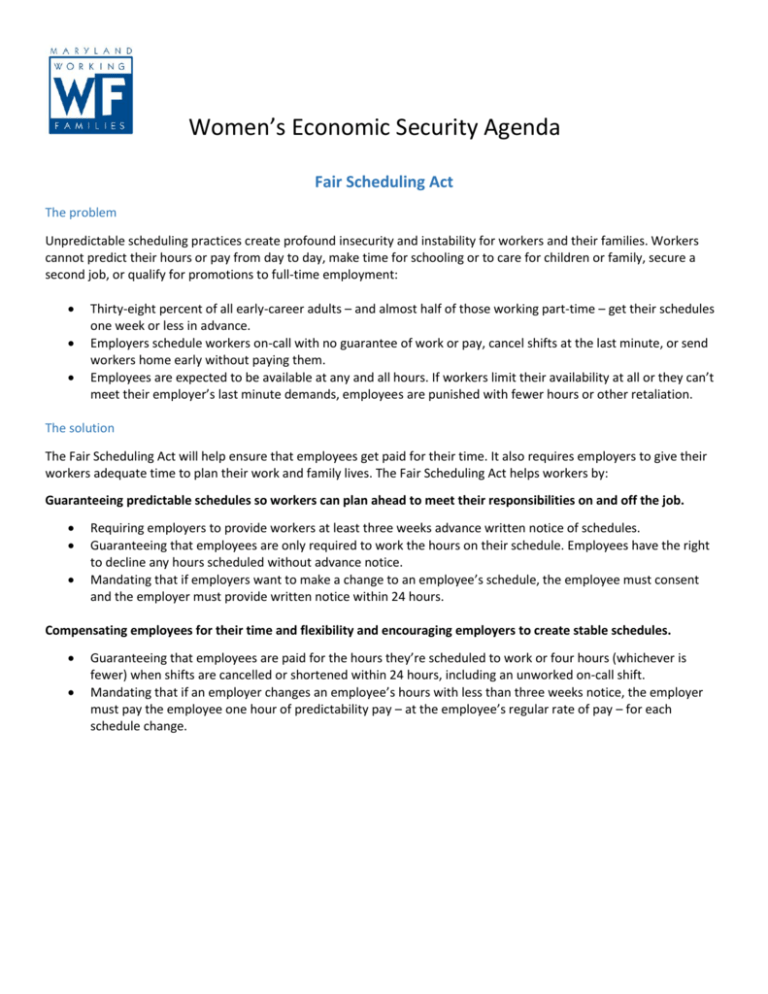
Women’s Economic Security Agenda Fair Scheduling Act The problem Unpredictable scheduling practices create profound insecurity and instability for workers and their families. Workers cannot predict their hours or pay from day to day, make time for schooling or to care for children or family, secure a second job, or qualify for promotions to full-time employment: Thirty-eight percent of all early-career adults – and almost half of those working part-time – get their schedules one week or less in advance. Employers schedule workers on-call with no guarantee of work or pay, cancel shifts at the last minute, or send workers home early without paying them. Employees are expected to be available at any and all hours. If workers limit their availability at all or they can’t meet their employer’s last minute demands, employees are punished with fewer hours or other retaliation. The solution The Fair Scheduling Act will help ensure that employees get paid for their time. It also requires employers to give their workers adequate time to plan their work and family lives. The Fair Scheduling Act helps workers by: Guaranteeing predictable schedules so workers can plan ahead to meet their responsibilities on and off the job. Requiring employers to provide workers at least three weeks advance written notice of schedules. Guaranteeing that employees are only required to work the hours on their schedule. Employees have the right to decline any hours scheduled without advance notice. Mandating that if employers want to make a change to an employee’s schedule, the employee must consent and the employer must provide written notice within 24 hours. Compensating employees for their time and flexibility and encouraging employers to create stable schedules. Guaranteeing that employees are paid for the hours they’re scheduled to work or four hours (whichever is fewer) when shifts are cancelled or shortened within 24 hours, including an unworked on-call shift. Mandating that if an employer changes an employee’s hours with less than three weeks notice, the employer must pay the employee one hour of predictability pay – at the employee’s regular rate of pay – for each schedule change.



